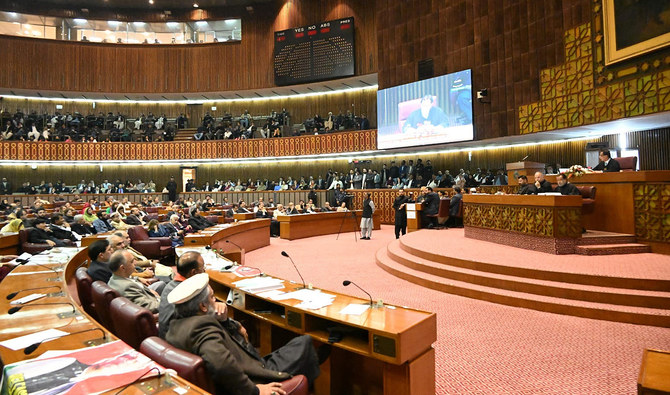Judicial Commission
National Assembly Speaker Sardar Ayaz Sadiq has officially submitted nominations from parliamentary parties to the Supreme Judicial Council, addressing the issue of forming a Judicial Commission tasked with appointing judges to the superior judiciary.
This move comes after thorough consultations with Senate Chairman and parliamentary leaders, marking a significant step in the implementation of the 26th Constitutional Amendment, which has expanded the commission’s role and membership.
In his letter to the Judicial Council, Speaker Sadiq outlined the nominations for the Judicial Commission, which include representatives from both the National Assembly and the Senate.
From the National Assembly, Omar Ayub of the Pakistan Tehreek-e-Insaf (PTI) and Sheikh Aftab of the Pakistan Muslim League-Nawaz (PML-N) were selected.
In the Senate, Farooq Naik and Shibli Faraz were chosen to represent the upper house of parliament. Additionally, Roshan Khursheed Bharucha was nominated to fill the women’s seat on the commission, ensuring gender representation in this crucial body.
These nominations were formally forwarded to the Secretary of the Judicial Commission and have been confirmed as received by the Supreme Court.
The creation of the expanded commission follows the recent passage of the 26th Constitutional Amendment, which introduced reforms to the process of judicial appointments.
Under this amendment, the commission now includes five parliamentary members, with equal representation from both the government and opposition. This ensures a more balanced approach in the appointment of judges to the Supreme Court, high courts, and the Federal Shariat Court.
In addition to the parliamentary representatives, the Judicial Commission consists of the Chief Justice of Pakistan, the three most senior judges of the Supreme Court, the senior-most judge from the constitutional benches, the Minister of Law and Justice, the Attorney General for Pakistan, a representative from the Pakistan Bar Council, and a minority or female representative from outside the parliament.
This expanded commission, now a 13-member body, is responsible for nominating judges for vacancies in the superior judiciary.
The nomination process under Article 175-A of the Constitution requires the commission to propose a candidate for each judicial vacancy, whether in the Supreme Court, high courts, or Federal Shariat Court.
Once a candidate is nominated, the name is forwarded to the Prime Minister, who then submits it to the President of Pakistan for final approval and appointment. This structured approach ensures a transparent and balanced selection process for judicial appointments.
Moreover, the commission has been granted additional responsibilities under the 26th Amendment. It is now tasked with assessing the annual performance of high court judges.
Should a judge’s performance be deemed inadequate, the commission may grant the individual time for improvement. However, if after the allotted period the judge’s performance remains unsatisfactory, the commission is required to refer the matter to the Supreme Judicial Council, which handles cases of judicial misconduct.
The amendment also empowers the commission to establish performance evaluation standards for judges. Additionally, one-third of the commission’s members have the right to request a meeting by submitting a written requisition to the chairperson, who must then convene the meeting within 15 days.
This provision ensures that the commission remains responsive and capable of addressing pressing issues related to judicial appointments and performance evaluations.
This new initiative reflects the government’s commitment to strengthening the judicial appointment process, enhancing transparency, and ensuring that qualified individuals are appointed to the country’s superior courts.
I am a dynamic professional, specializing in Peace and Conflict Studies, Conflict Management and Resolution, and International Relations. My expertise is particularly focused on South Asian Conflicts and the intricacies of the Indian Ocean and Asia Pacific Politics. With my skills as a Content Writer, I serve as a bridge between academia and the public, translating complex global issues into accessible narratives. My passion for fostering understanding and cooperation on the national and international stage drives me to make meaningful contributions to peace and global discourse.










